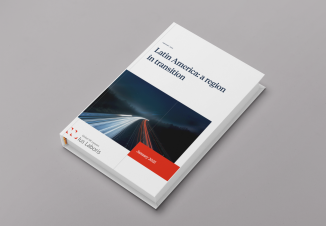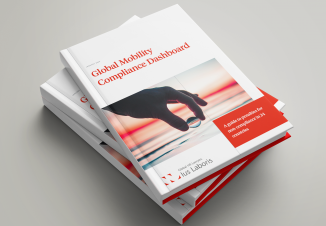
Following a seven-year legislative process, on 20 April 2021, the new far-reaching reform of Chilean immigration law was published.
The new law, the ‘Immigration and Foreigner Law’ (No. 21,325) replaces Decree-Law N° 1,094 which has been in force for over 40 years since 1975. The Law creates a new immigration system, restructuring Chilean immigration and providing a more organised and controlled migration system.
The new Law is a response to the number of immigrants, which has significantly increased over recent years in Chile, but also a result of socio-political crises in various Latin American countries that see Chile as politically and economically stable and therefore, want to migrate to the country.
In addition, the COVID-19 pandemic has accelerated the legislative process for the new Law, because although the government closed its borders as a preventive measure during the pandemic, irregular border crossing in the northern part Chile were reported, ending in the death of at least two migrants who entered this year through a highland pass in the Andes mountains.
The purpose of the Law is to regulate the entry, stay, residence, and exit of foreign nationals, their rights, and duties, but also the power of the government to expel migrants that have entered Chile irregularly.
The Law entered into force on 12 February 2022, with the publication in the Official Gazette of Decree N°. 296 (the Decree approves the Regulations for the Law). Following the entry into force on 14 May2022, of Supreme Decree N°177, which establishes the new temporary residence subcategories, the old migratory categories of temporary residence, ‘subject to contract’ and student from the old Decree-Law, will no longer be in effect.
The main key changes to the Immigration Law are set out below.
The Law replaces the Department of Immigration and Migration of the Ministry of Interior with a new institution called the ‘National Migration Service’. The old immigration office was criticised, especially for the long wait times and delays in the granting of visas.
The National Migration Service and its Regional Directorates have been created to regulate migration processes throughout the country. It is expected that all procedures and waiting times will be expedited with the creation of the National Migration Service and its Regional Directorates. The national territory will be covered in a better way, without concentrating all the procedures in the Metropolitan Region, especially in Santiago.
In addition, the Service will have to report the processing status of residence permit applications every 60 working days.
The Law establishes new migratory categories and subcategories, which will be processed and granted by the National Immigration Service. There are five main categories of visas:
Transitory Stay (90 days)
This is the permit granted by the Service to foreign nationals who enter the country without the intention of settling in it. It authorises them to remain in Chile for a limited period.
Since the Law entered into force, Transitory Stay Permit holders who are in the country may not apply for a residence permit in Chile. Previously, those foreign nationals were able to apply for a visa or residence by entering Chile as a tourist and applying through an in-country process. Now, in-country change of status is restricted by the Law.
Nevertheless, the Law includes some exceptions to this new regulation, for example, for Transitory Stay Permit holders who comply with the requirements in the Law, such as proving to have family ties with Chileans or with permanent residents, cases in which their stay in Chile is consistent with the objectives of the National Policy on Migration and Aliens or in other cases identified by the Undersecretary of the Interior by resolution, after a report from the Migration Service. These individuals will still be able to change their residence status in Chile.
The subcategories of this permit are the following:
Official Residence
This category of permit is provided for diplomats and officials of international organisations.
Temporary Residence
Temporary residence is granted to foreign nationals who can prove that they have family ties or interests in the country and whose residence is deemed useful and convenient.
The Law establishes the minimum subcategories of Temporary Residence, defined by a Supreme Decree (No. 177) which was published on 14 May 2022 in the Official Gazette. It establishes the following Temporary Residence Migratory Subcategories:
The Supreme Decree establishes the general and particular requirements for obtaining the subcategories of temporary residence set out above. It is important to bear in mind that as a rule, applications for temporary residence permits must be made from abroad through the electronic platform provided by the Migration Service.
There is an exception to this rule for applications for family reunification permits, permits for humanitarian reasons, and permits for individuals whose stay is consistent with the objectives of the National Policy on Migration and Aliens (and other cases established by the Undersecretary of the Interior by resolution), which may be made from Chile.
Likewise, applications by individuals who are already holders of a temporary residence permit and wish to change their migratory subcategory, extend it, or change the quality of the residence permit in relation to dependents, may be requested in Chile through the electronic platform provided by the Migration Service for this purpose.
Permanent residence
This permission can be granted to foreign nationals who already have current valid Temporary Residence to reside indefinitely and conduct any lawful activity in Chile.
However, according to Supreme Decree No. 177, those who hold any of the following permits are not eligible to apply for permanent residence:
Qualified Nationality
The new category of ‘qualified nationalisation’ aims to facilitate acquisition of nationality for those with family ties with Chileans. Under it, foreign nationals who have only two years of continuous residence can opt for nationalisation if they meet any of the following requirements:
All applications will now be submitted through National Migration Service´s website available at the following link: https://tramites.extranjeria.gob.cl/.
The Law introduces new immigration-related violations and sanctions, with different categories according to their gravity.
It is important to note that the Law contains new regulations for employers. The Law establishes the principle that foreign nationals enjoy the same labour rights as Chileans and all employers must comply with their legal obligations in labour matters, without detriment to the irregular immigration status of any hired foreign national. This is without prejudice to the sanctions that the Labour Inspectorate may apply.
In addition, employers are only allowed to hire foreign nationals who have a temporary residence or permanent residence which enables them to work, or those who are duly authorised to do so. In the event an employer hires foreign nationals without the appropriate permits, this will constitute a serious immigration infraction punishable by a fine that will vary depending on the number of employees in the organisation.
In addition, the Law enables foreign employees to report their employers for non-compliance with immigration, labour, or any other type of law. Foreign employees who are not authorised to perform remunerated activities will not be sanctioned for working without authorisation if they make such denunciations against their employer.
In conclusion, significant changes have been introduced by the Law that will affect foreign nationals coming to Chile and will modernise our immigration system for the future.


